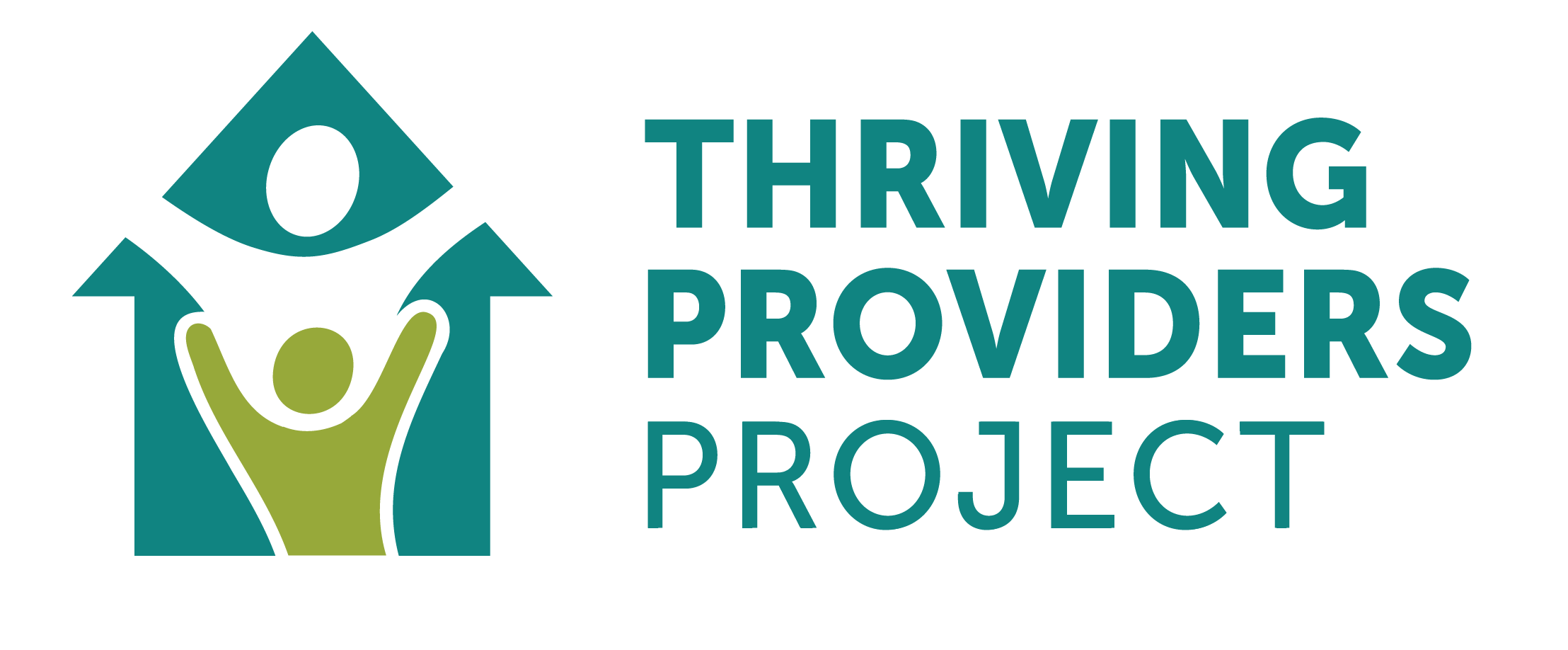Author: Alexandra R. Patterson
The Thriving Providers Project (TPP) pilot program was designed to demonstrate how direct cash transfers can impact the economic stability and emotional well-being of home-based child care (HBCC) providers — ultimately strengthening their ability to deliver quality care.
To date, TPP data has empowered pilot sites to collaborate with local policymakers on significant reforms aimed at improving compensation, expanding access to benefits, and increasing overall system support for HBCC providers.
One of TPP’s central goals is to boost HBCC providers’ engagement with and access to public benefits that offer additional financial security. As the initiative has expanded across the U.S., we are now seeing more clearly how — and whether — TPP participants are accessing these benefits. We also consider whether different types of HBCC including family child care (FCC) providers and family, friend and neighbor (FFN) caregivers engage differently in these benefit programs.
FCC providers, while eligible for programs like child care subsidies and the Child and Adult Care Food Program (CACFP), continue to face low wages — often qualifying for public assistance programs such as the Supplemental Nutrition Assistance Program (SNAP) and Medicaid. According to the 2012 National Survey of Early Care and Education (NSECE), the average income for FCC providers was $29,377 annually.
We find varied usage of these programs across our sites and differences between FCC and FFN utilization. There are several reasons why FCC providers participating in TPP may be utilizing public benefits at higher rates than FFN caregivers:
- Language access: FFN caregivers who participated in TPP in Colorado and Los Angeles were more likely to speak Spanish than FCC participants in Philadelphia.
- System navigation skills: Licensed FCC providers are often more familiar with navigating public systems (licensing, zoning, health and safety regulations), giving them a strategic advantage in applying for other benefits.
- Policy alignment: Early childhood system policies tend to provide stronger support and funding access to licensed care settings.
Federal Policy Threats to HBCC
These findings highlight just how vulnerable home-based providers are to policy changes — making the HR1 Budget Reconciliation Act especially concerning.
This legislation introduces new eligibility criteria and administrative burdens — including strict work requirements and cost-shifting to states — that could severely affect HBCC providers. The bill proposes:
- A reduction of over $1 trillion in federal Medicaid and Children’s Health Insurance Program (CHIP) funding over the next decade
- Eliminating incentives for states to expand Medicaid
- Shifting SNAP costs — previously federally funded — to individual states
These cuts will harm not just providers, but the families and children who rely on their services.
The Role of Local Leadership
Despite these federal challenges, local decision-makers must remain bold and proactive. Their actions are critical in stabilizing the home-based child care sector and ensuring continued access to essential services for families across the country.
In this uncertain policy environment, we remain committed to supporting providers as they advocate for their future — elevating their voices, sharing their stories, and holding policymakers accountable.We hope that TPP findings will continue to serve as a resource for communities developing local solutions. We’ll keep tracking these trends and sharing insights here — through this blog/newsletter — for both current and new TPP sites.

